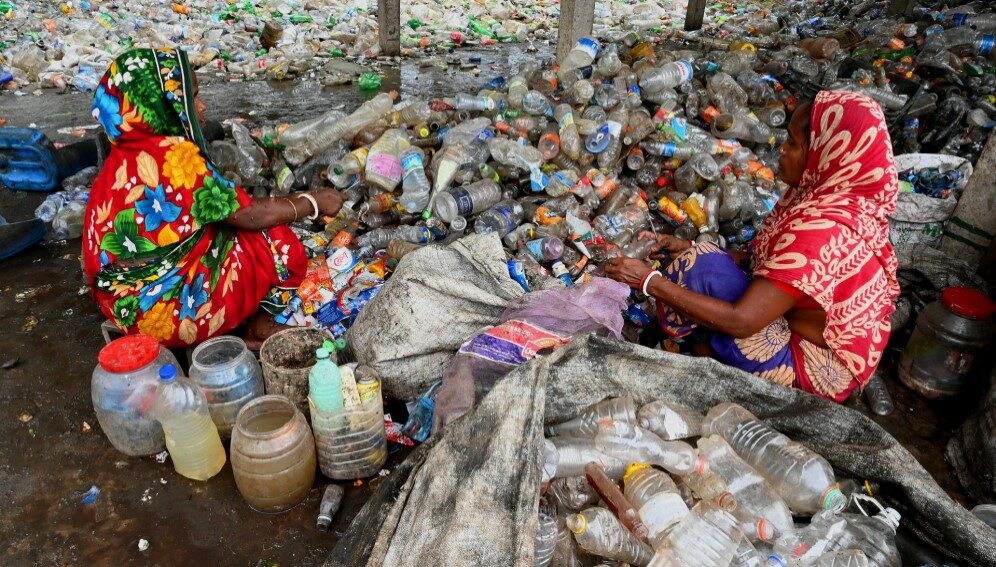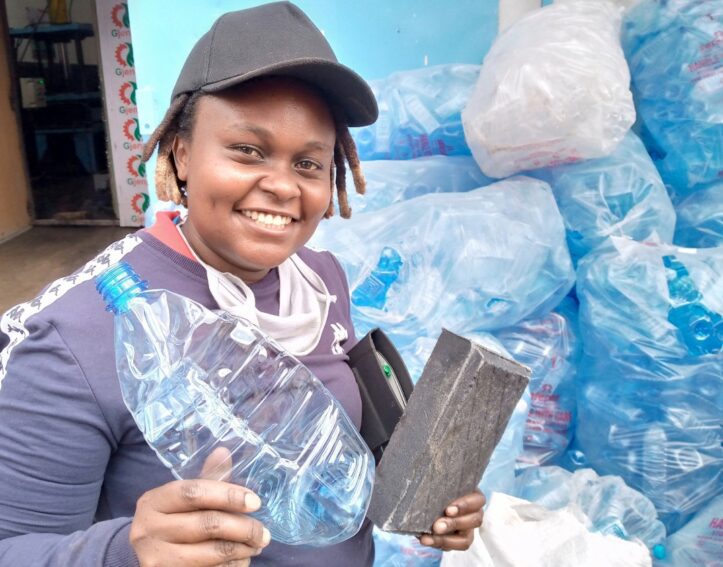16/02/22
Q&A: ‘My purpose is to go where no one else has gone’

By: Michael Kaloki
Send to a friend
The details you provide on this page will not be used to send unsolicited email, and will not be sold to a 3rd party. See privacy policy.
Nzambi Matee believes in going where no one else has gone before.
Making bricks from plastic waste is seen by many in Kenya as an unusual venture, and when Matee quit her engineering job in the oil sector to take on plastic pollution, her friends and family were sceptical she could succeed.
But her tenacity is paying off. Matee tells SciDev.Net that her brick-making social enterprise Gjenge Makers is increasing production as they recycle tens of thousands of kilograms of plastic waste every year.

Nzambi Matee, material scientist and social entrepreneur. Photo credit: Michael Kaloki
What inspired you to make bricks from plastic waste?
There is litter everywhere. Plastic litter is not only a Kenya problem, it is a worldwide problem. My thought process revolved on what I could do to take plastic and convert it into something that is practical and useful for my community. The only practical and useful category I could think of is the basic needs [of] food, shelter or clothing. So, I settled for shelter. My goal was to look at ways of converting plastic waste to assist in the provision of shelter in the housing space.
[My friends and community] found it very strange. In the beginning they were confused, but I challenged them and told them to wait and see. Five years down the line they understand what I meant.
Africa Science Focus goes inside the Gjenge Makers workshop for a VIP tour of the unique production facility.
You left what some would consider a very financially rewarding sector, the oil and gas sector, and you moved to a sector that is relatively unknown in Kenya. Did you feel that that was taking a risk? Was it expensive to undertake your venture?
Yes, I think it is one of the biggest gambles. I believe in going where no one else has gone. That is what I believe is my purpose. My belief is that this is my way of making a dent in the universe.



It is a costly affair. You have a lot of upfront costs. I decided to go step by step. I started by manufacturing one brick. After that I thought, ‘Now that I have made one brick what do I need to make a thousand bricks? I need machinery.’ I saw the cost of the machines and realised that I could not afford them. So, I decided I would build the machines. I found a team of good smart people and we have pushed on slowly.
Do you feel that what you are doing helps improve the environment?
I choose to believe that it has an impact. I might see the impact when I am as old as my grandmother. Maybe I might not live to see the impact, but my hope and prayer is to make the drop that would have a ripple effect to the next generation and society.
In 2020 you received the Young Champion of the Earth award from the United Nations Environment Programme. The award also provided you with an opportunity to receive mentorship. What are the benefits of such mentorship programmes?
I was very excited and honoured to receive an award which is relatively prestigious, especially to those in the environmental sector. It has opened a lot of doors which have catapulted us to the next level.



I think mentorship should be part of the core of every society. It is learning from someone else’s lesson. I would say I am a proud recipient of mentorship, both within the business environment and personal environment. Mentorship helps in making work easier and propels you in the right direction, which leads to quicker progress.
I’m currently mentoring my own team at Gjenge Makers, because as they say, charity begins at home. I see a lot of potential within my team. As far as venturing outside my team to provide mentorship, I want to give back just as I was given. It is only fair to give back.
This interview has been edited for clarity and brevity.
This piece was produced by SciDev.Net’s Sub-Saharan Africa desk.













